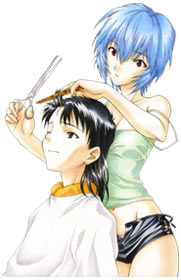When you use a foreign language every day, it’s a no-brainer you’re going to find yourself in a situation where you don’t know a given word. Although I’m functionally fluent in Japanese, I need only to venture a little outside my normal sphere of activity to find myself encountering words I’m not familiar with, like the time I accidentally ordered motsu curry, not knowing that motsu was beef tripe, no doubt a wonderful delicacy but not what I was in the mood for. While it’s always okay to ask for clarification when you don’t know a word, in practice it’s sometimes easier to just let the conversation flow and try to pick up the threads later. Once I was “randomly” chosen to get up in front of a crowd of people and conduct the Maebashi Philharmonic Orchestra playing Beethoven’s 5th Symphony. After failing hilariously, the MC asked me…something that I couldn’t understand. With 2000+ people focusing on me, I wasn’t about to ask her to repeat herself, and fortunately there are a lot of generic non sequiturs available in Japanese, like そうですか? so desu ka? or ええ、まあ ee, mah or 何とも言えない nantomo ienai “I can’t say anything to that.” Recently I went to get a haircut, and the lady told me they were doing eri-sori free to celebrate the anniversary of the shop opening. I didn’t know what the word meant — was she going to leech me? trim my eyebrows? — but I trusted that it wasn’t anything bad and said sure. Eri-sori, I found out, is getting the back of your neck shaved with a straight razor during a haircut so the hairline is straight.
(Actually if she’d said eri-sori I’d have figured it out. She pronounced 剃る soru “to shave” as suru which threw me off. Turns out it was the lady speaking Gunma-ben…)

It’s not hard to encounter unfamiliar nihongo.















